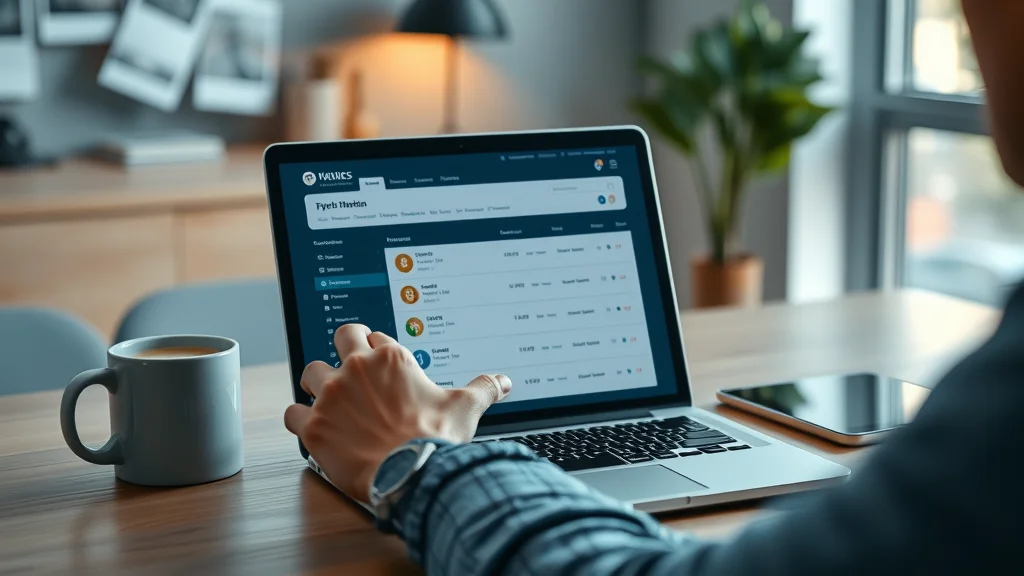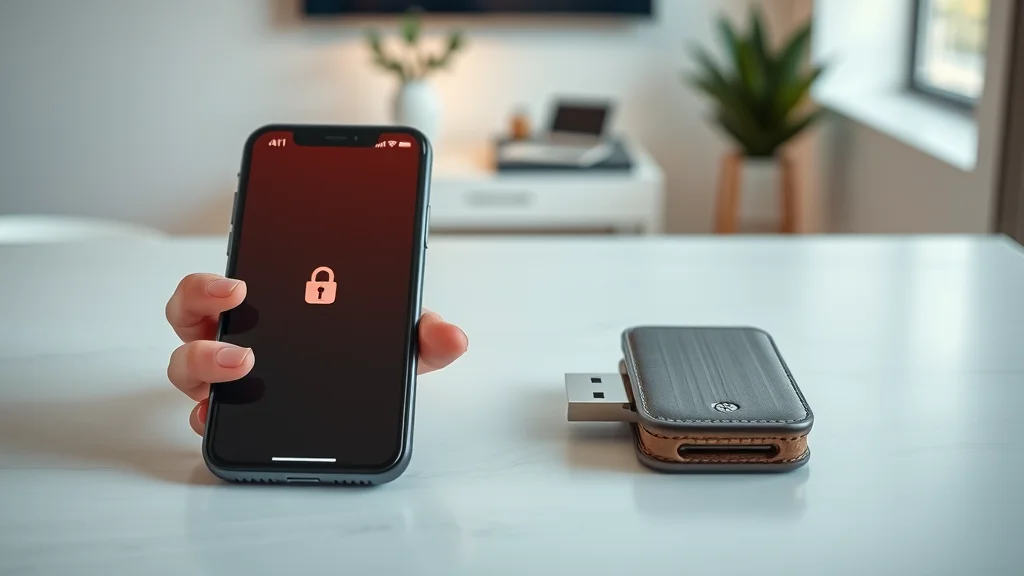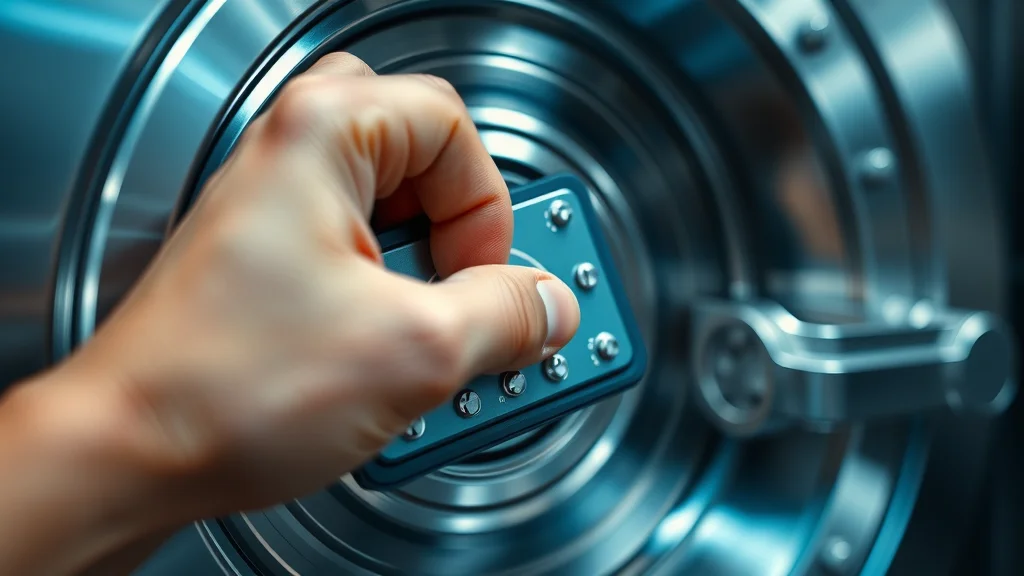Did you know that over $3 billion in cryptocurrency was stolen in 2023 alone? The stakes are real, but with the right cryptocurrency wallet, you can keep your digital assets safe from online threats and hackers. In this easy-to-read guide, we’ll break down the basics of crypto wallets, hot wallets, and cold wallets, helping you make smart choices to protect your coins, whether you’re investing, trading, or just curious about the digital future of money.
Did You Know? Over $3 Billion in Cryptocurrency Was Stolen in 2023 Alone—Learn How Cryptocurrency Wallets Safeguard Your Assets
Security is everything when it comes to digital money. With the rising popularity of cryptocurrencies like Bitcoin and Ethereum, hackers are constantly on the lookout for easy targets. Fortunately, cryptocurrency wallets are designed to secure your funds and give you back control over your money. Choosing the right type of wallet is essential—especially since not all wallets are created equal. Hot wallets provide instant access but are always online, making them more vulnerable to hacks. Meanwhile, cold wallets offer offline, nearly impenetrable storage for your most valuable crypto assets. In this article, we’ll guide you through what these terms mean and how they affect your daily use of crypto, helping you decide how to best protect and access your digital treasures.
Let’s explore how choosing the right wallet could be the difference between keeping your funds safe—or losing them to cyber thieves.

What You'll Learn About Cryptocurrency Wallets, Hot Wallets, and Cold Wallets
- The basics of cryptocurrency wallets and crypto wallets
- Differences between hot wallets and cold wallets
- How private keys, public keys, and seed phrases work
- Best practices for using cryptocurrency wallets securely
- Pros and cons of popular crypto wallet types

Table: Quick Comparison of Hot and Cold Cryptocurrency Wallets
| Feature | Hot Wallets | Cold Wallets |
|---|---|---|
| Security | Lower, always online | Higher, offline storage |
| Accessibility | High, instant transactions | Limited, requires connection |
| Ideal for | Daily use, trading | Long-term holding |
| Private Key Control | Often stored with provider | User-managed |
| Examples | Trust Wallet, Coinbase | Ledger, Trezor |
Top 10 Things Every Beginner Should Know About Cryptocurrency Wallets

-
What Are Cryptocurrency Wallets?
What Are Cryptocurrency Wallets?
"A cryptocurrency wallet is like a bank account that only you control, designed to store, send, and receive digital currency."
Cryptocurrency wallets, also known as crypto wallets, are digital tools that let you send and receive crypto, check your balance, and interact with blockchain networks. Your wallet does not actually store your digital assets; instead, it keeps the crucial private keys that give you access to your cryptocurrencies. Think of your wallet as your personal gateway to the digital world of Bitcoin, Ethereum, and other coins. Unlike traditional bank accounts, these wallets are controlled only by you, offering much more control over your funds but also more responsibility for safety. Most wallet interfaces make it easy to review transactions, view your digital assets, and send payments securely to friends or merchants.
-
Types of Cryptocurrency Wallets: Hot vs Cold
Comparing Crypto Wallet Types: Hot Wallets vs. Cold Wallets

Crypto wallets come in many shapes and sizes, but the main categories are hot wallets and cold wallets. Hot wallets, like a mobile app or online wallet, are always connected to the internet, giving you instant access so you can buy and sell quickly. Cold wallets, on the other hand, stay offline—making them much harder for hackers to reach. Typically, cold wallets are physical devices (hardware wallet) or sometimes even a piece of paper. Each type has its strengths: hot wallets are ideal for fast, daily transactions, while cold wallets excel in storing your crypto assets safely for the long term. The choice depends on whether you value convenience or top-tier security.
-
How Private Keys and Public Keys Secure Your Crypto
How Private Keys, Public Keys, and Seed Phrases Work in Cryptocurrency Wallets
At the heart of every cryptocurrency wallet are your private key and public key. Your public key acts like your email address—share it with others so they can send you cryptocurrencies. The private key is your master password; it lets you access your crypto and approve transactions. Never share your private key! A single leak means losing control forever. To help protect access, most wallets also provide a seed phrase: a backup code made from 12 or 24 words. This lets you restore your funds if you ever lose your device. Always store your seed phrase in a safe place, on paper and away from prying eyes. Without these keys, your crypto assets are gone for good!
- Private keys are crucial for ownership—never share them
- Public keys are safe to distribute for receiving funds
- Seed phrases help you recover your wallet

-
Understanding Seed Phrases and Backups
Your seed phrase is the ultimate backup for your cryptocurrency wallet. If you ever lose your device or forget your password, this unique combination of 12 or 24 words lets you recover everything. Keep your seed phrase private and never store it digitally on an online device; paper is best. Many users store their seed phrase in a safe place—sometimes even using metal plates designed to survive fire or water. Remember, anyone with your seed phrase can access all your digital assets, so treat it as the keys to your crypto kingdom.
-
Exploring Hot Wallets: Software Wallets for Accessibility
Hot Wallets: Advantages and Risks
A hot wallet is a software wallet connected to the internet, including mobile apps and browser-based wallets. Using a hot wallet is like carrying a digital purse—it’s ready to go anywhere your phone or laptop is. The biggest perk is convenience: You can buy and sell crypto, check your balance, and pay at a moment’s notice. However, since hot wallets are connected to the internet, hackers can potentially reach your private keys if you don’t take precautions like using passwords and two-factor authentication. Hot wallets are best for small amounts or trading, not for storing your entire savings. Examples include Trust Wallet and Coinbase Wallet.
- Instant access and convenient for trading
- Connected to the internet—higher risk of hacks
- Ideal for users who buy and sell regularly

-
Getting to Know Cold Wallets: Hardware Wallets for Security
Cold Wallets: Advantages and Risks
Cold wallets are like having your digital fortune locked in a vault, offline and out of reach for online hackers. Hardware wallets (such as Ledger or Trezor) or paper wallets are the most common cold wallet types. These wallets work by storing your private keys away from internet-accessible devices. Once you disconnect, your crypto becomes immune to most online attacks, but this also means you can’t buy, sell, or trade instantly. If you’re a long-term investor or want to secure large amounts, a cold wallet is a great option. The only major risk: If you lose your hardware wallet and your seed phrase, recovery is often impossible.
- Offline storage, immune to most online hacks
- Less convenient for frequent transactions
- Ideal for long-term investors

-
The Role of Wallet Providers: Trust Wallet, Coinbase Wallet, More
Popular Examples: Hardware Wallets, Software Wallets, Trust Wallet, and Coinbase Wallet
There are dozens of wallet providers out there, each offering a mix of security features and supported crypto coins. Trust Wallet and Coinbase Wallet are two of the most trusted names in hot wallets, with easy mobile app access, multi-coin support, and convenient interfaces for decentralized applications (dApps). For those who want maximum safety, hardware wallets like Ledger and Trezor are cold wallet market leaders, praised for strong physical security and offline management. It’s smart to choose wallets that suit your daily routine, whether you want to quickly buy and sell, or just store digital assets for years to come.
Want to see how these wallets work? Check out our short animated video guide (below) for a visual walk-through!
Animated Guide: How Cryptocurrency Wallets Work (video) -
Managing Fees and Transactions with Cryptocurrency Wallets
Every time you buy and sell, send, or receive crypto, your wallet will likely process a small transaction fee. These fees go to miners or validators who secure the blockchain. Hot wallets often let you set the speed (and cost) of your transaction—faster means higher fees. Cold wallets typically interact with specialized software to send funds, but fees still apply when your digital assets move on the network. Understanding fees helps you avoid surprises and plan your transactions wisely. Some platforms, like exchanges, may offer zero-fee wallets for specific tokens, but always check the details before moving your crypto.
-
Keeping Your Cryptocurrency Wallet Safe from Theft
Security Best Practices for Cryptocurrency Wallets
When you control your wallet, you’re also the bank. Protecting it is your responsibility. Follow these best practices to make sure no one else can access your crypto assets:
- Always backup your seed phrase
- Never share your private key
- Consider multi-factor authentication for added security

Be careful using crypto wallets on public WiFi, and pay attention to scams, phishing links, or anyone asking for your private keys. For cold wallet users, keeping your device and seed phrase in a literal safe place is the key to long-term protection. The more steps you take to secure your wallet nowadays, the less likely you’ll fall victim to the increasing number of hacks and scams in the cryptocurrency world.
-
Choosing the Right Crypto Wallet for Your Needs
The Pros and Cons of Cold Wallets vs Hot Wallets
Feature Hot Wallet Cold Wallet Security Less secure Most secure Access Immediate Less convenient Setup Easy Moderate If you aim to store large amounts of cryptocurrency for the long haul, a cold wallet gives you the highest level of security. If you prefer rapid trading, crypto payments, and constant access, a hot wallet is likely best for you—just take extra steps to guard against online threats. Many active crypto users maintain both types, moving assets between wallets depending on changing needs and risk appetite. For extra tips on daily wallet safety, watch our expert interview (below) with a cryptocurrency security specialist!
Interview with Security Expert on Cryptocurrency Wallet Best Practices
How to Buy and Sell Using Cryptocurrency Wallets
- Choose your crypto wallet (hot or cold)
- Fund your wallet with cryptocurrency
- Navigate exchanges to buy and sell
- Ensure safe withdrawal to your wallet

To buy and sell digital assets, you’ll first need a crypto wallet setup and funded. Start by choosing between a hot wallet for easy access or a cold wallet for safer storage. Fund your wallet by purchasing supported crypto from a trusted exchange, then transfer assets to your wallet’s public key. When you’re ready to trade or sell crypto, use the wallet’s connection to trusted trading platforms—always double-check addresses before sending. After every transaction, withdraw assets to your own wallet for maximum safety. A little caution goes a long way to ensure you never lose what you’ve earned.
FAQs on Cryptocurrency Wallets, Hot Wallets, and Cold Wallets
Which crypto wallet is best?
The best crypto wallet depends on your needs. For active trading and daily use, hot wallets like Trust Wallet or Coinbase Wallet are highly popular for their easy mobile app interfaces and support for many cryptocurrencies. For security and storing large amounts of digital assets, hardware wallets like Ledger or Trezor (cold wallets) offer maximum peace of mind. Many users combine both!
Is there a free crypto wallet with no fees?
Yes, many wallets are free to download—including Trust Wallet and MetaMask. However, while the wallet may be free, the blockchain networks charge small transaction fees (especially for Bitcoin and Ethereum). Some wallets or platforms offer zero-fee transactions for select coins, but always read the fine print!
What is a cryptocurrency wallet?
A cryptocurrency wallet is a digital tool that lets you store, send, and receive crypto. It doesn’t hold coins physically, but manages the private keys that control access to your digital assets on the blockchain. Wallets come as mobile apps, software programs, online services, or physical hardware devices.
Can you cash out from a crypto wallet?
Yes. Most crypto wallets let you send your digital assets to exchange platforms where you can sell them for regular money (like USD or EUR). Once sold, you can transfer the local currency to your bank account. It’s always a good practice to withdraw crypto from exchanges to your personal wallet for better security.
Key Takeaways on Cryptocurrency Wallets and Storage Options
- Hot wallets are best for active users; cold wallets excel in security
- Always secure your private keys and seed phrases
- Select a wallet that matches your needs and risk tolerance

We'd love to hear what you think about this? Please add your comments below...
Conclusion: Choosing the Right Cryptocurrency Wallet for Your Digital Assets
- Consider your use case—accessibility vs. security
- Research providers (Trust Wallet, Coinbase Wallet, hardware wallets)
- Stay updated on wallet security best practices
Your wallet is your gateway to the crypto world—make your choice wisely!
Sources
- Coindesk – https://www.coindesk.com/learn/crypto-wallets-explained/
- Investopedia – https://www.investopedia.com/terms/c/cryptocurrency-wallet.asp
- Blockchain.com – https://www.blockchain.com/learning-portal/cryptocurrency-wallets
- Forbes Advisor – https://www.forbes.com/advisor/investing/cryptocurrency/crypto-wallets-explained/
To deepen your understanding of cryptocurrency wallets, consider exploring the following resources:
-
“What is a crypto wallet?” by Coinbase provides a comprehensive overview of how crypto wallets function, including the importance of private keys and the different types of wallets available. (coinbase.com)
-
“Best Crypto Wallets” by Consumer Reports offers detailed reviews and comparisons of various crypto wallets, helping you choose the one that best fits your needs. (consumerreports.org)
These resources will equip you with the knowledge to select and use cryptocurrency wallets effectively, ensuring the security and accessibility of your digital assets.
 Add Row
Add Row  Add
Add 




Write A Comment